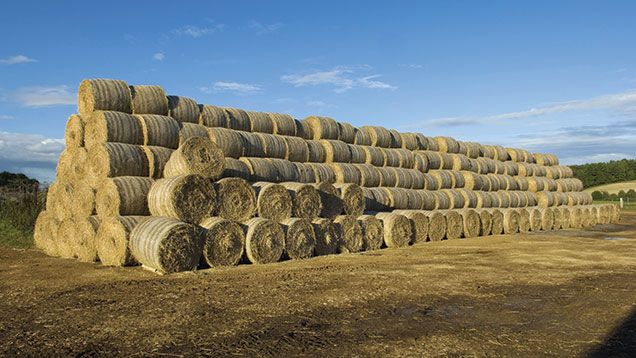Norfolk biomass plant construction begins
 © Mint Images/REx
© Mint Images/REx Construction of a large-scale straw-fired biomass plant at Snetterton in Norfolk has got under way and is due to be operational in the next two years.
The project, which was granted planning permission in 2012, has been developed jointly by Iceni Energy and ECO2.
Danish firm Burmeister & Wain Scandinavian Contractor (BWSC) recently signed a deal to handle the construction, operation and maintenance of the power plant over a 15-year period, with DKK 1.44bn (£147m) of funding being provided by a Danish pension investment company.
The 44.2MW plant is expected to be operational in spring 2017 and will have capacity to supply 82,000 homes.
See also: Energy demand for straw heats up in the east
ECO2 and BWSC are also behind a similar-sized biomass project at Brigg in Lincolnshire, which is due to come on stream next January, taking up to 238,000t of mainly wheat straw, plus straw from some other crops, miscanthus or woodchip, mostly from local sources.
The developers are also targeting locally grown straw for the Snetterton plant and an ECO2 spokesman said supply contracts were already in place for much of the straw required, but added that there could be further opportunities when the plants become operational.
“The fuel strategy has always been to look to local farmers for supply and the majority of the fuel required for the project has already been contracted on this basis.
“The remaining contracts will become available once the project becomes operational and these are likely to mirror other contracting arrangements in the market place,” she said.
Big potential for biomass
One fifth of global energy supply, or 60% of the world’s renewable energy, could come from biomass by 2015, according to a report by the International Renewable Energy Agency (Irena).
About 40% of this could come from agricultural residues (such as straw), with another 30% from sustainable forestry products, it said.
The report acknowledges there are many challenges to address in meeting the rapid growth in supply and demand of sustainable biomass, but says it can be done without competing with food production.
